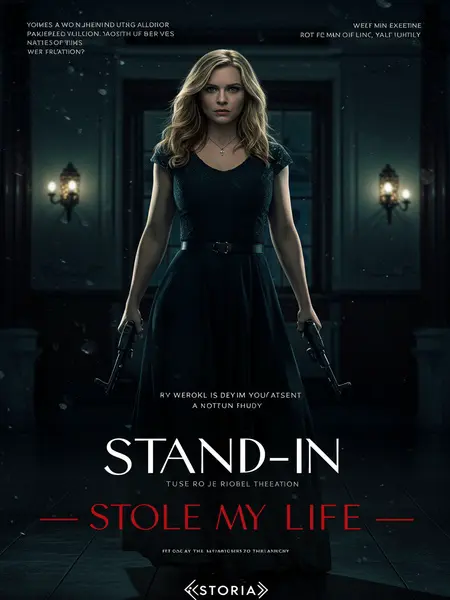Chapter 4: Guilt and a Deal
Three
I took a deep breath and said slowly, "I just got home and I need time to breathe before we talk about anything else."
The president agreed.
The subject was dropped for now.
Obviously, many people breathed a sigh of relief—cutlery resumed its soft clatter, the band swelled into something lighter, someone cracked a joke that drew a few nervous laughs.
Lillian sat beside me, silent the whole time.
After the banquet ended, she followed me as I left.
Just like when we were young, she called me timidly, "Natalie."
It was my given name, not just the public title that came with my adoption.
Five years ago, the one who was supposed to go for the marriage alliance was Lillian.
Her birth mother, Mrs. Lawson, knelt outside the Executive Residence for two hours before the president changed his mind.
The image of Mrs. Lawson, stoic and trembling on the stone steps as light rain beaded on her coat, burned in my mind—press cameras rolling, security murmuring into radios—becoming the kind of capital moment that swayed a nation.
In the end, I was the one sent for the marriage alliance.
Lillian lowered her head and said, "I’m sorry."
Looking at her bent posture, I narrowed my eyes.
I did resent her.
I resented that she enjoyed the glory of being the president’s daughter but was unwilling to bear the responsibility.
Otherwise, I wouldn’t have been sacrificed.
But more than resenting her, I hated my own parents.
For wealth and glory, they abandoned me.
And even found a substitute to torment and kill me.
"Natalie, I know it was my selfishness and cowardice that made you go for the marriage alliance. I’m not asking for forgiveness—I just want to do something for you." Her voice caught, hands twisting her purse strap.
I stared at her. "Anything?"
She hesitated at first, then looked at me resolutely. "Anything." The room held its breath with us.
"Good," I said.
Lillian’s face lit up, looking at me excitedly—hope and dread warring in her eyes.
I curled my lips, but my smile didn’t reach my eyes.
Because of her guilt toward me, she helped Aubrey Sinclair everywhere, letting an outsider become the center of attention among the socialites of the capital—introducing her to a key donor, covering for her when she missed a charity board meeting.
Now, I want to see just how Aubrey Sinclair becomes the center of attention.
A flash of challenge sparked in my eyes. I imagined the swirl of capital gossip—who would land the Sunday society spread, who’d get the last laugh. My next move formed, sharp and inevitable.













